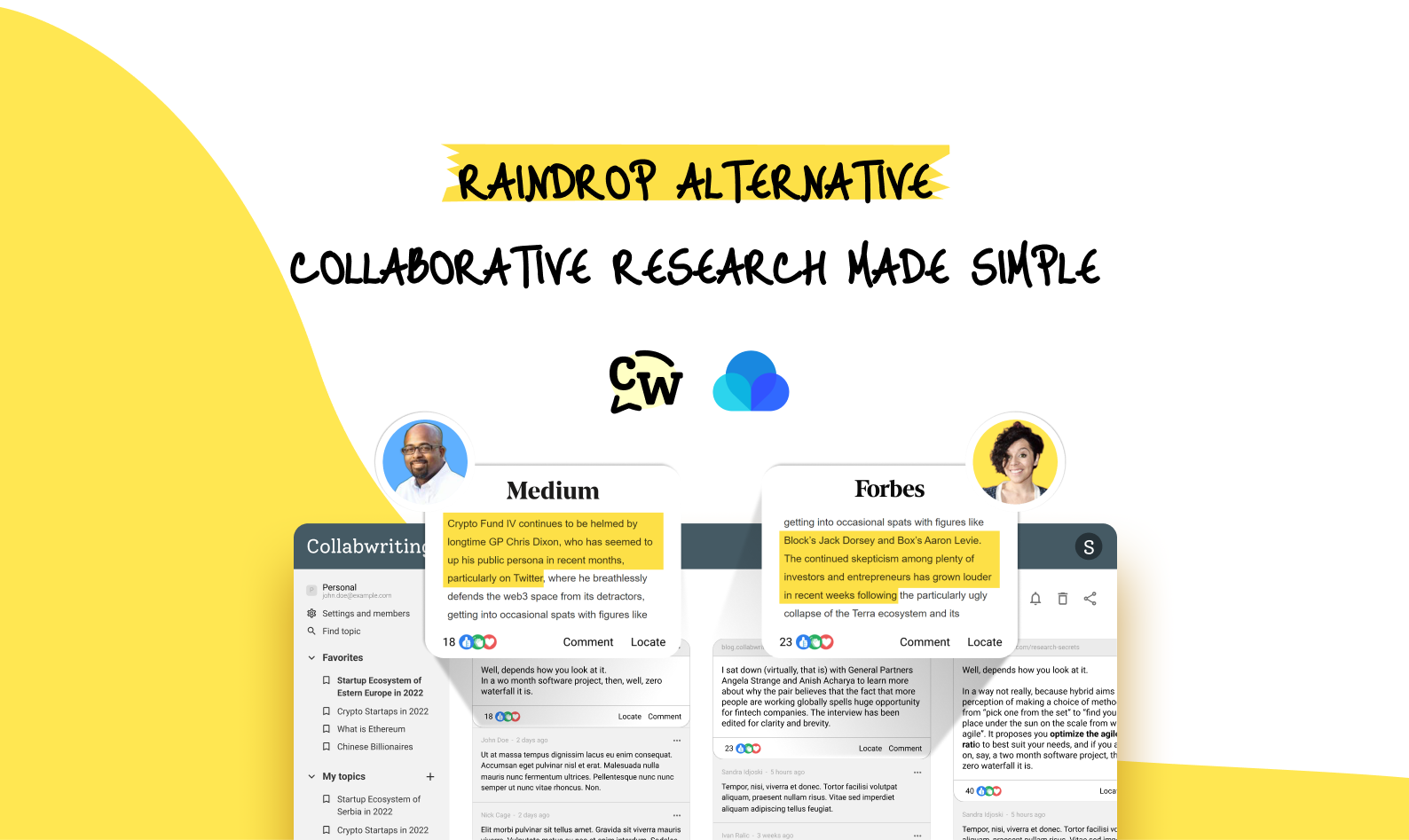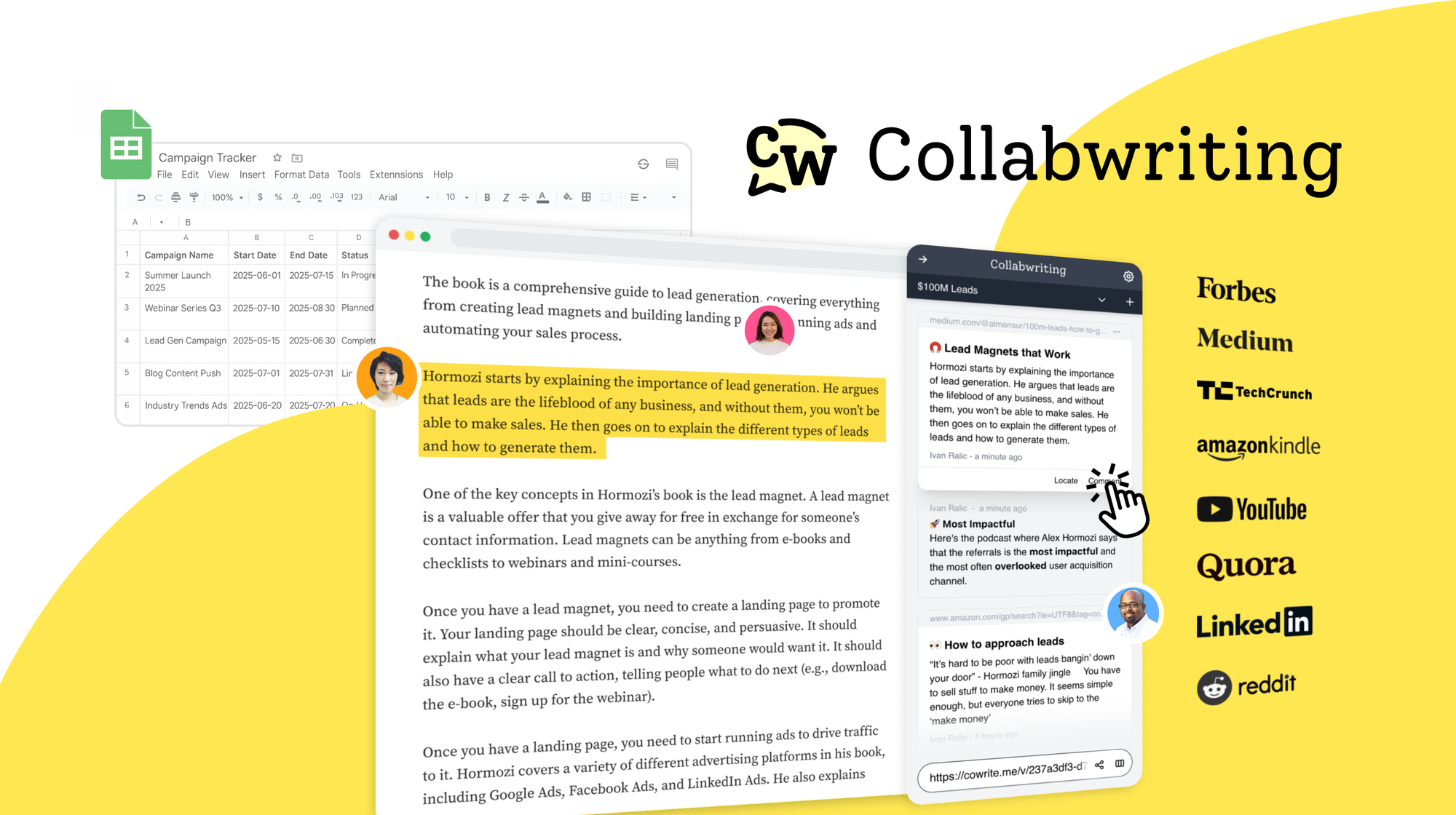To climb the career ladder, you've got to make yourself more noticeable, not just seen, but recognized for the results you deliver.
One smart way to do this is through research collaboration. 💡
Collaborating on research projects with others in your field not only highlights your expertise but also expands your network and sharpens your skills.
In this article, we’ll explore practical ways to use research collaboration tools to improve your professional visibility and teamwork.
Understanding The Importance of Professional Visibility
Before we jump into how teaming up on research can help improve your professional visibility, let's make sure we're on the same page about what professional visibility really means.
Defining professional visibility
Professional visibility is about how you’re seen and respected in your industry. Strong visibility means people value your opinion, seek your advice, and consider your work influential.
One way to boost visibility is by publishing research papers and articles. Using research collaboration platforms allows you to co-create content and leverage collective expertise, making your contributions even more impactful.
Networking also plays a key role. Collaborating on research with other professionals opens doors to speaking gigs, projects, and career opportunities.
Go to conferences and workshops, meet people who share your interests, and start collaborations. These connections could land you cool projects, speaking gigs, and maybe even job offers.
Additionally, sharing your insights and opinions on various forums and platforms like Reddit and LinkedIn can help build credibility, especially when your contributions are supported by evidence, examples, and valuable knowledge.
Notably, there's a badge system - if you consistently share knowledge and actively engage in discussions, you earn a badge, showcasing your expertise in a specific field.
What Is Collaborative Research?
Collaborative research is working with other experts to conduct studies, publish papers, or develop projects together. By pooling knowledge and resources, teams tackle complex problems more effectively.
Why Use Research Collaboration Tools?
Research teams need platforms designed specifically for collaborative workflows, not just general team apps.
Tools like Collabwriting help you gather, organize, and share research efficiently, whether it’s web content, PDFs, or multimedia data. It supports verifying sources,, keeping track of references, and maintaining rigorous standards, all while enabling smooth collaboration across different locations and time zones.
Top Benefits of Collaborative Research
Collaborative research has a bunch of great benefits, but it all starts with listening.
When you're teaming up with others, start by being a good listener. Listen with an open mind and heart, especially when the topic is new or different opinions are on the table.
If you nail this, people will naturally feel at ease sharing their thoughts, laying the groundwork for collaborations.
1) A higher level of expertise
Teaming up in research means bringing together everyone's expertise, skills, and knowledge. This collective brainpower often results in a deeper understanding of a subject or problem.
2) Resource sharing
Using research collaboration tools, teams can store and share resources in one place, making large projects manageable.
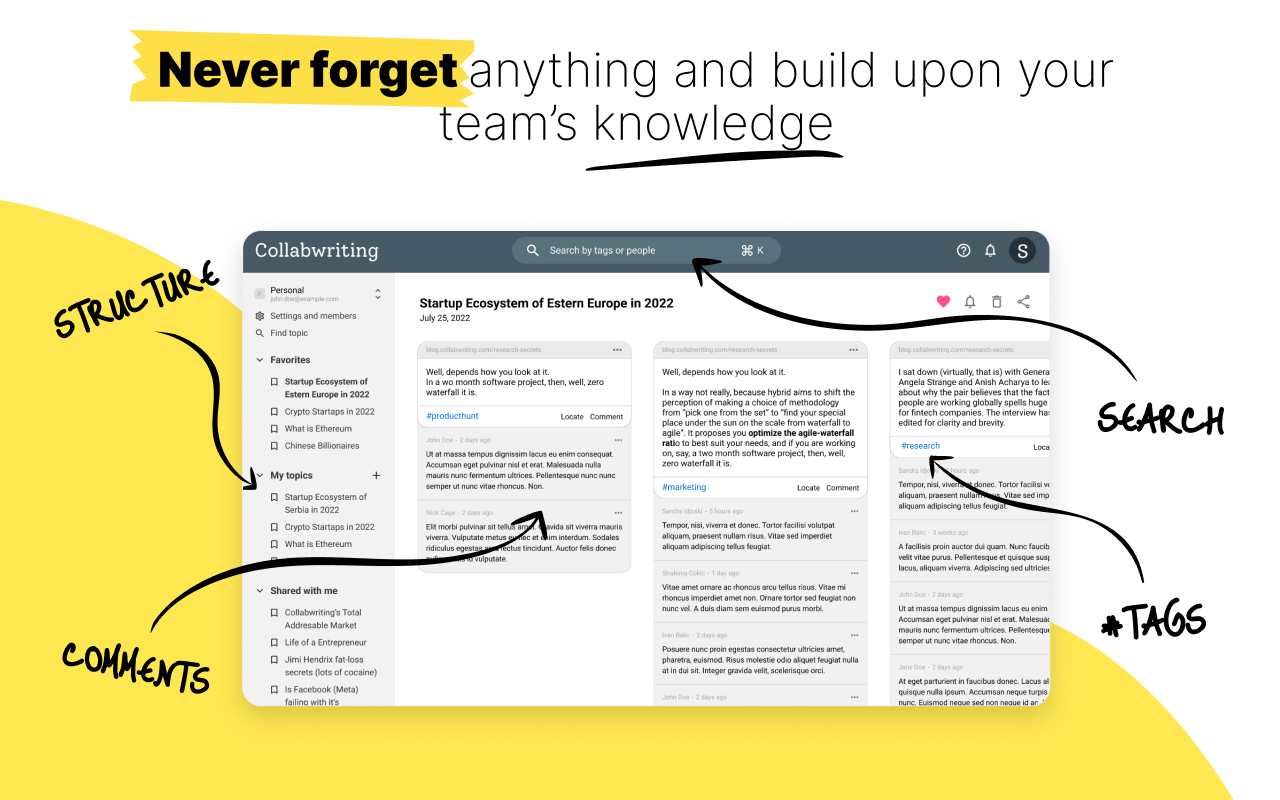
Collabwriting - Shareable Notes on Web Pages and PDFs
Collabwriting allows you to gather all your online sources in one place. Just highlight, save, and collaborate with anyone on any content you find online.
3) Better productivity
Teams get more done because members can work on different parts of a project at the same time. This way, tasks are done faster, making the overall research process easier.
4) Diverse perspectives
By spending time with people who come from different backgrounds and have different ways of thinking about problems, you’ll generate more ideas and have more opportunities to find new solutions or better ways of doing things.
You may find a way of approaching an old issue that finally gets results or a new approach that no one had thought of before.
Plus, collaborating with others brings different viewpoints and methods, sparking creativity and innovation for better research outcomes.

How to Use Research Collaboration Tools
- Collect and organize information from multiple sources - Gather articles, reports, videos, and PDFs in one central hub. Use tags, folders, or clusters to structure your findings by topic, project, or priority, so your team can quickly locate relevant insights.
- Annotate articles, PDFs, and reports - Highlight key points, underline evidence, and add context directly on the source. This turns static documents into interactive knowledge assets that everyone on the team can understand at a glance.
- Leave comments and feedback directly on shared resources - Share thoughts, ask questions, or suggest improvements without losing context. Real-time discussions tied to the specific content reduce miscommunication and keep conversations focused.
- Track contributions and progress for the whole team - See who added what, monitor updates, and identify gaps in research. This transparency ensures accountability and helps teams coordinate efforts efficiently.
Conclusion
If you want to be recognized as an expert in your field, start sharing your knowledge through collaborative research.
Using the right research collaboration tools, you can increase visibility, improve teamwork, and produce higher-quality research.
Remember: knowledge grows fastest when shared.
FAQ 🧐
What is research collaboration?
Research collaboration is when two or more professionals work together on studies, projects, or publications. By pooling skills, knowledge, and resources, collaborative research allows teams to tackle complex problems more effectively and generate higher-quality insights.
What are research collaboration tools?
Research collaboration tools are platforms designed to help teams gather, organize, share, and annotate research materials efficiently. Tools like Collabwriting allow teams to collaborate on web pages, PDFs, videos, and other content, keeping track of contributions and ensuring smooth teamwork across locations and time zones.
Why is collaborative research important for professional visibility?
Collaborative research increases your exposure in your field. By contributing to shared projects, publishing research jointly, and leveraging team expertise, you become recognized as a knowledgeable and reliable professional. It also expands your network and opens doors to career opportunities.
How can I improve teamwork with research collaboration tools?
Research collaboration tools allow teams to organize information in a central hub, annotate documents, leave feedback, and track contributions. This improves coordination, reduces miscommunication, and ensures everyone is aligned on project goals.
What are the main benefits of collaborative research?
- Higher level of expertise through combined skills and knowledge
- Resource sharing for efficient project management
- Increased productivity with parallel workflows
- Diverse perspectives that foster innovation and creative solutions
How do I choose the best research collaboration tool?
Choose a tool that fits your team’s workflow, supports multiple content types (web, PDF, multimedia), allows annotations and feedback, and tracks contributions. Ease of use, scalability, and security are also key considerations.




![The Best Tool for Collaborative Research in Content Marketing Teams [2026]](/content/images/2025/12/image--5-.png)
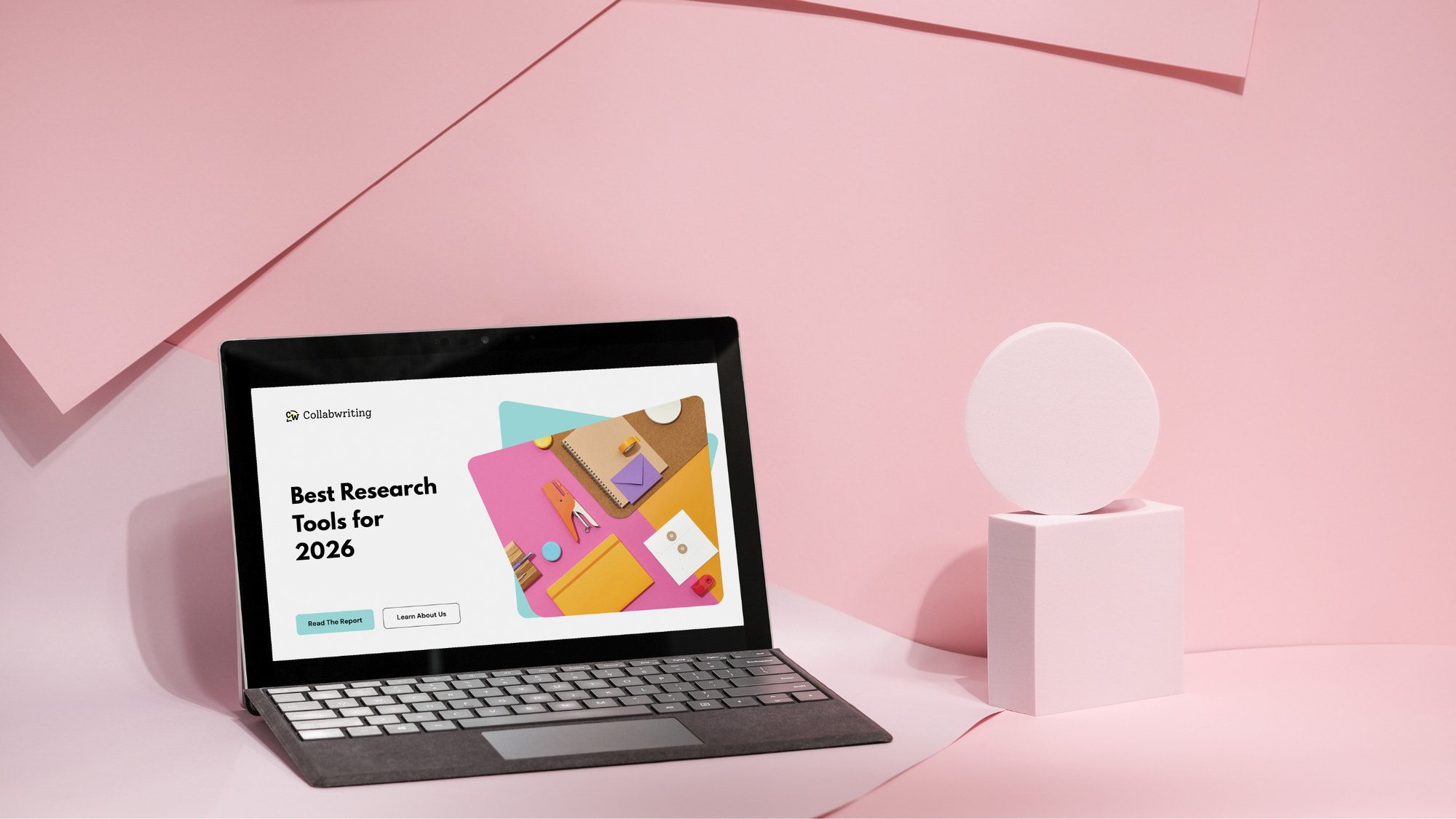
![5 Tools Marketers Use to Organize Research - Compared [2026]](/content/images/2025/11/cover-4-1.png)

![Build Credibility in Research: Smart Way to Verify Information and Track Sources Easily [2025]](/content/images/2025/10/covers-for-blog--7--1.png)
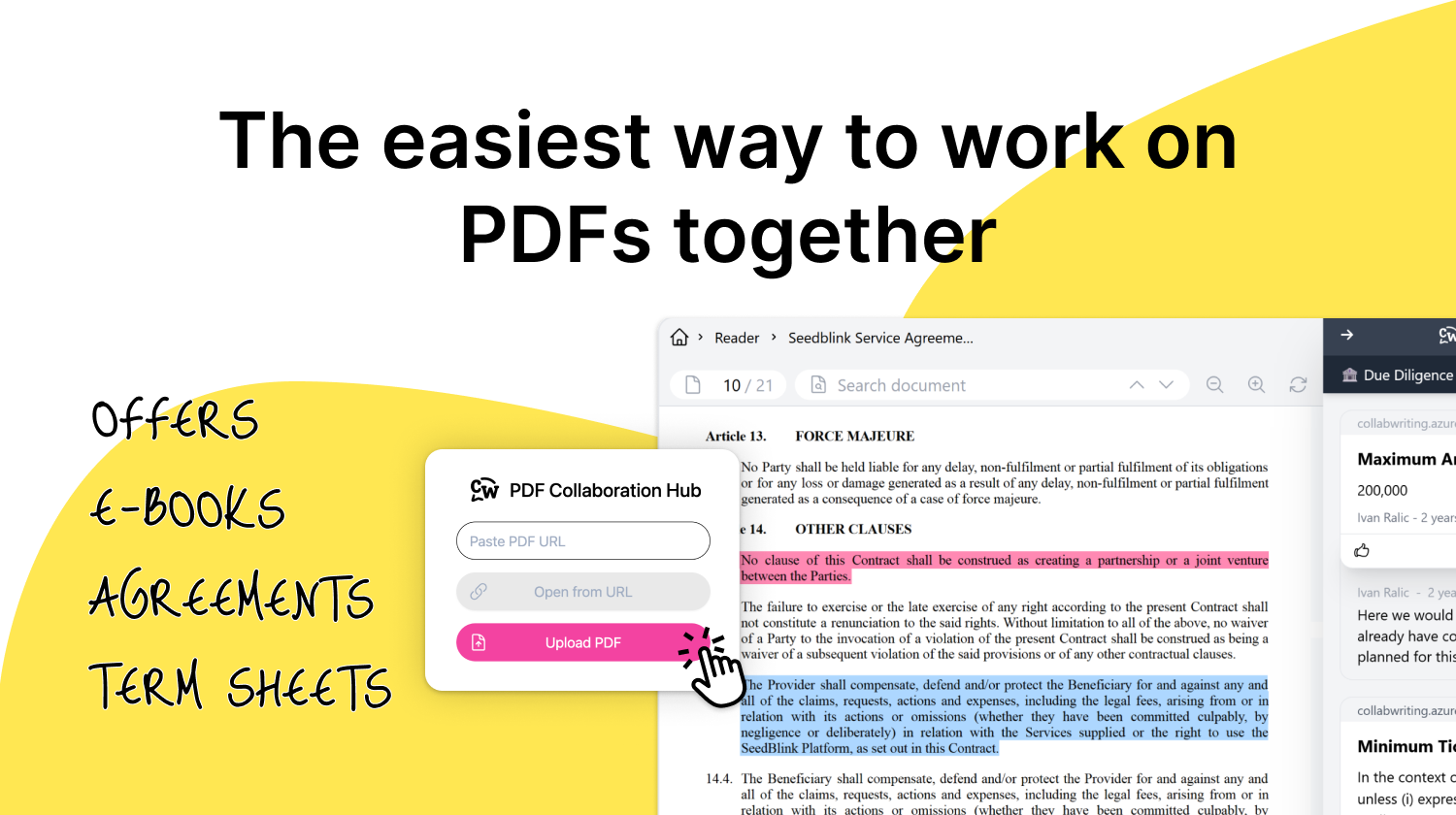
![How Marketers Can Turn LinkedIn Content into Collaborative Research [2025]](/content/images/2025/10/covers-for-blog--8-.png)
![Best Readwise Alternative for Personal & Team Research [2026]](/content/images/2025/09/Frame-814--3-.png)
